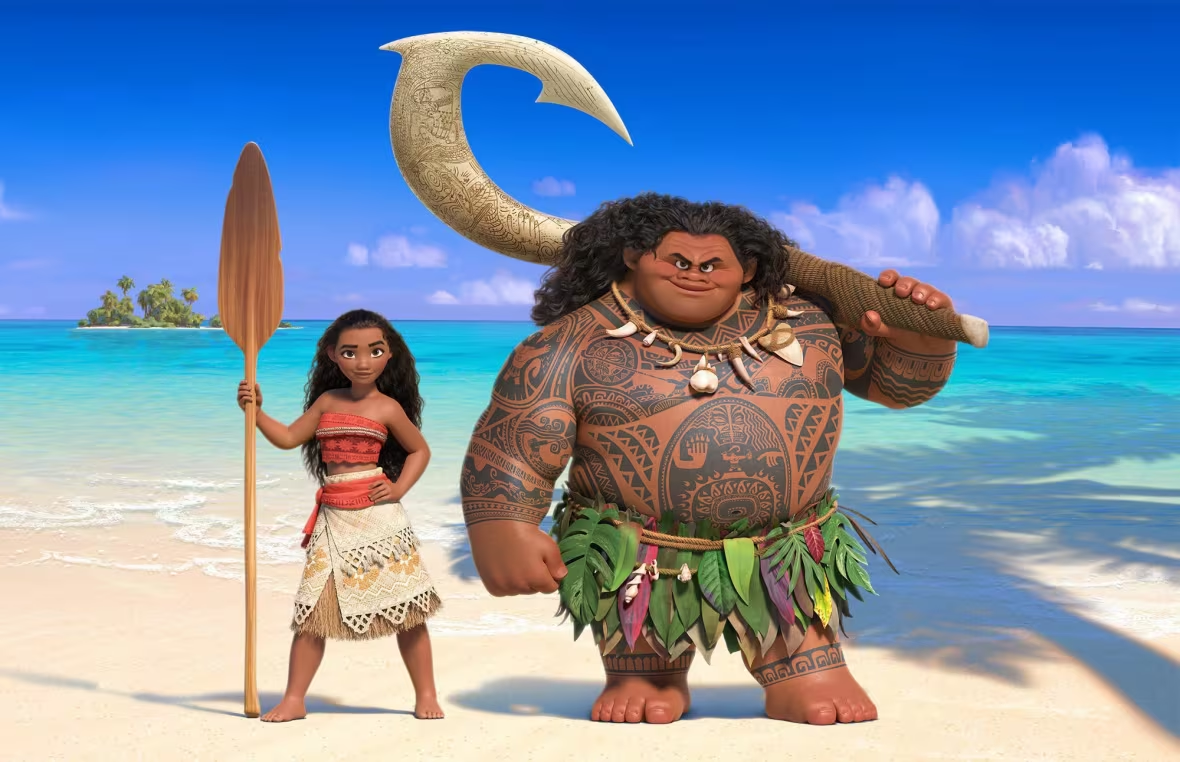Disney pulls boy's costume critics lambasted as 'Polyface'
Costume depicts Maui, a revered figure in Polynesian traditions, and character in upcoming Disney film

Disney said Wednesday it would no longer sell a boy's costume for a Polynesian character that some Pacific Islanders have compared to blackface.
The getup depicts Maui — a revered figure in Polynesian oral traditions and viewed by some Pacific Islanders as an ancestor — who is a character in the upcoming animated movie Moana. It has a long-sleeve brown shirt and long pants featuring full-body tattoos. It comes with a fake shark-tooth necklace and green-leaf "skirt."
Disney's online store had offered boy's pyjamas and a men's T-shirt in a similar design, but those products were no longer available Wednesday.
"The team behind Moana has taken great care to respect the cultures of the Pacific Islands that inspired the film, and we regret that the Maui costume has offended some," the company said in a statement. "We sincerely apologize and are pulling the costume from our website and stores."
Chelsie Haunani Fairchild said it's offputting to have a child wear the skin of another race.
"Polyface is Disney's new version of blackface. Let's call it like it is, people," Fairchild said in a video she posted on Facebook.
The Native Hawaiian college student said in an interview the costume doesn't honour or pay homage to a culture or person, but makes fun of it.

Fairchild, who is attending school in San Antonio, Texas, later said she accepted the apology, but it didn't change what the company did. She said Disney only stopped marketing the outfit because people spoke out.
Moana is due for release in November. The animated feature is about a teenager who sails through the South Pacific to a fabled island. She meets Maui, who helps her explore the ocean.
The Disney online store began selling the costume recently, just in time for Halloween. The listing noted the getup had "padded arms and legs for mighty stature!"
Tevita Kaili, a professor of cultural anthropology at Brigham Young University-Hawaii, said he was happy Disney responded to the criticism and pulled the product.
He said the costume featured tattoos that would be used in Polynesia by chiefs, adults and those committed to the community. They're removed from their cultural context by appearing on a Halloween costume, he said.
For example, the outfit has triangle designs used to symbolize sharks. These would normally be used by families who consider sharks to be ancestral guardians, he said.
Maui seen as an 'important ancestor'
Kaili himself views Maui as an ancestor, like many people from his home island of Koloa in Tonga, where a temple is dedicated to him.
Kaili said stories handed down about Maui snaring the sun or pulling islands out of the ocean are just metaphors for how he discovered new islands as he sailed the ocean.
"For most of us in the Pacific, in Polynesia, we see Maui as an important ancestor to us — as a real person," he said.
The costume earned international condemnation.
Marama Fox, a co-leader of New Zealand's indigenous Maori Party and a member of New Zealand's parliament, said the costume was a case of cultural misappropriation and an example of a company trying to profit off of another culture's intellectual property.
The movie itself, she said, appeared to be playing into stereotypes.
"It depicts Maui as a bit of a beefy guy, and not in a good way. That's not the picture I have of the Maui who fished up the North Island, and had a number of feats attributed to him," she said.